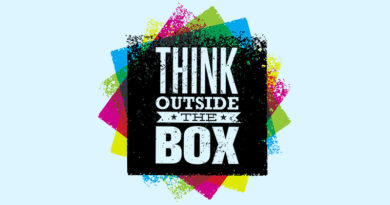Time In A Bottle
By Jeff Finkelstein
“My favorite things in life don’t cost any money. It’s really clear that the most precious resource we all have is time.”
— Steve Jobs
“Many people mistakenly think a new technology cancels out an old one.”
— Judith Martin (aka Miss Manners)
“What do you mean life is short? Life is the longest dang thing we will ever know.”
— Me
As someone who has been in the workplace for over 40 years, I have seen a vast number of life-changing classes and technologies that have promised to change how we live, the way we work, the relationships we have with our peers, friends, and significant others. There have been innovations to grow hair, soothe our aching bodies, and make our teeth whiter. All promise to be new, improved, better than anything before. Yet somehow, each technology is surpassed by something even better.
I am going to take a different path in my article this month and not talk about technology, but instead talk about something basic to all of us. The way we interact with each other, how we see information, learn about it, remember, and share it. I do not have any background in any of this other than a lifetime of learnings, so I ask to be given some leeway in my discussing this lofty topic.
What got me thinking along this meandering path was an article I read in Harvard Business Review. That article discussed how a study at UCLA showed students learned better and remembered 65% more of lectures when they took notes in longhand. I won’t get into the details, but it was fascinating to me as I started taking notes years ago using a program called Evernote, which is fabulous as it worked on all my devices and synchronized across all of them. It has become my storehouse of knowledge as all my notes, links, articles, and documents go into it. I had to type the notes, but it made things easy to find later. Assuming my notes were accurate and complete.
However, when I found myself referring to my notes to review them, I realized they are not as complete as they should be. In fact, they are often so lacking in detail I must look to a second source or go back to others from the meeting for more information. I could chalk it up to getting older but given that I remembered many details and general concepts, I think it is the process of capturing information where I was failing, not the retention of it.
Many months ago, this led me to my search for how we learn, and I started observing people in meetings, which led to a disturbing observation. Like many of us, I spend a significant amount of time in meetings gathering nuggets of information, after which I go to another meeting and share, collect a few more, wash-rinse-repeat. The cycle goes on-and-on with one meeting leading to another, and another, and another. What I see in these meetings is that many have their laptops, tablets, or phones out, and are not using them to take notes, instead they are looking at and answering emails, working on other documents, surfing the web, chatting with people through IM, looking at Facebook, and more. This is happening not just in-person, but also with virtual meetings. I am as guilty of this as everyone. I realize that some, especially younger folks, multitask much better than us old fogies, but I find even the young’uns asking about topics that were covered in meetings they were attending far too often.
After observing how many are doing this, I moved on to the next step. How many of us who are distracted end up needing this information later? I asked people how often they needed to go back to their notes and look for more information on a topic that was covered in a meeting. It turns out that it happened quite frequently and often required them to ask others. I then asked if they knew whether it was covered in the meeting, and many did not know as they were caught up in other activities. So, this led to the next very uncomfortable question…
Is the information at these meetings not being shared correctly or are those in attendance who will likely need the information distracted by other things?
I am posing a question that I have no answer to, but I do know with myself if I am distracted at a meeting, I will likely need the information I missed and must go back to someone to find it. As a result, I have wasted not only their time, but the time of my peers who are depending on me to share it effectively.
Jeff’s rule #74: The information you miss during a meeting while distracted will be needed later.
Another point I realized is that when I do this at meetings, I am exhibiting very bad manners. The person who is speaking feels they have important information to
share. If I can’t give them my full attention for the 30-60 minutes they need, then I am not showing them the respect they deserve as part of my extended team.
I speak at many events each year and have noticed a trend that is equal to these observations. I know I am not the most interesting speaker at times, but I do hope the information I am presenting is of interest to those in attendance, otherwise why be in the audience?
Which leads me to my quotes at the top of this article. The first from Steve Jobs is about time being the most precious thing we have, not just our time but aslo the time of others. It is the greatest gift we can give anyone and when it is given it should not be taken lightly. The second quote from Judith Martin is about manners. Technology does not remove the need for manners in business settings. In fact, it amplifies it as we have a means to be easily distracted from the very person who is sharing their time with us. The third quote is mine and meant to show we should never take our available time for granted.
As an ending to this article (and by the way, thank you for the time you have given me by reading it) is to ask for you to participate in a simple experiment:
- At your next few meetings leave your electronics at your desk or someplace you cannot reach them. Ask others to do the same.
- Take notes longhand in a tablet writing app, notebook, or some scraps of paper. I like Evernote, but use what works for you.
- Focus on the person speaking. Ask questions. Be an active audience member. Participate.
My belief is if we do this more often we will need fewer meetings to share the same information, create better business relationships by focusing on the speaker, reach consensus quicker, and that we will all gain more time in our lives for the act of creating and not explaining. If this resonates with you and it is something you are willing to try, send me a note and let me know how it goes.

 Jeff Finkelstein
Jeff Finkelstein
Chief Access Scientist,
Cox Communications
Jeff.Finkelstein@cox.com
Jeff Finkelstein is the Chief Access Scientist for Cox Communications in Atlanta, Georgia. He has been a key contributor to engineering at Cox since 2002 and is an innovator of advanced technologies including proactive network maintenance, active queue management, flexible MAC architecture, DOCSIS 3.1, and DOCSIS 4.0. His current responsibilities include defining the future cable network vision and teaching innovation at Cox. Jeff has over 50 patents issued or pending. He is also a long-time member of the SCTE Chattahoochee Chapter.
Shutterstock




